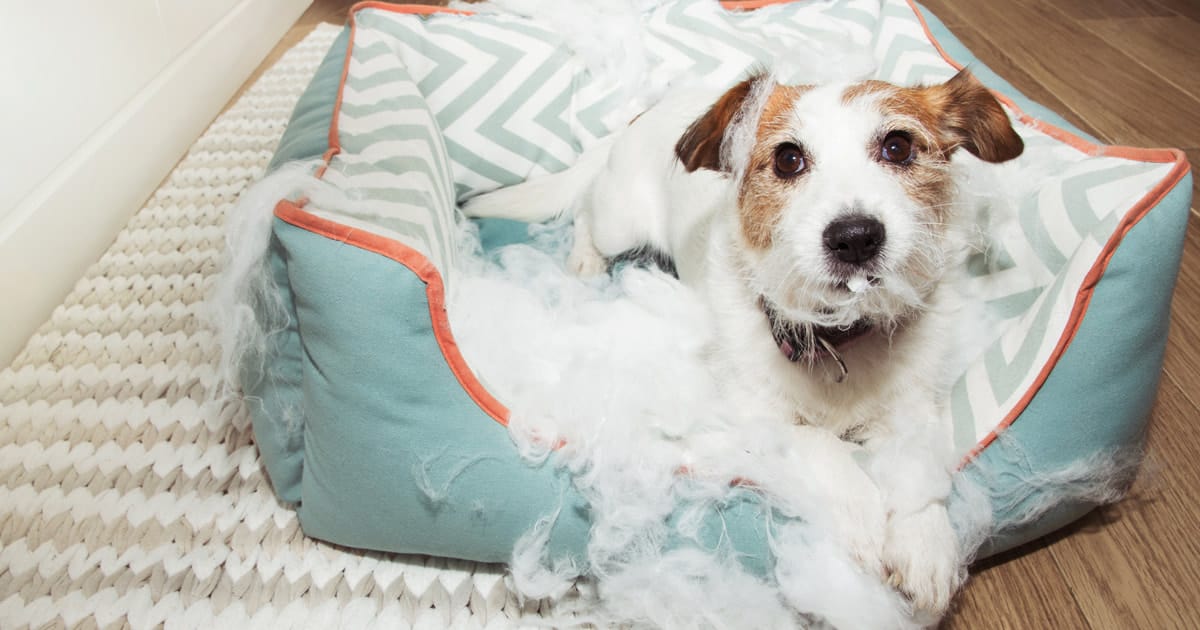The 8 Best Orthopedic Dog Beds

Are you on your way to the store because your pup chewed up their bed… again? We’ve all been there. Many dogs get into the bad habit of chewing on just about anything they can get their mouths on, and their beds are no exception.
If you’re trying to get them to quit munching on their bed for good, you’ve come to the right place. We’re here to help you bust your pup’s bad habits.
Why Is My Dog Biting Its Bed?
- Your dog may have anxiety. One of the most common reasons for destructive behaviors is anxiety. Anxiety is surprisingly common among our four-legged friends. Dogs can become anxious when they’re in a new environment, new people come over, you introduce new pets or babies, they’re separated from you or left home alone for a long time, or they’re suffering from a chronic medical condition.
- Your dog may be bored. If your pup isn’t getting enough stimulation, they may turn to a destructive habit to entertain themselves. And we can’t blame them for finding a boredom buster, but it doesn’t make it any less upsetting when they tear up their beds.
- It could be an instinct. Many breeds have an instinctual inclination for digging and burrowing, and this could be a way for them to tap into their canine roots. If you have a dog that was initially bred to dig and burrow (like a terrier, dachshund, or husky), keep this in mind.
Tip One: Switch to a Non-Chew Bed
Tip Two: Try an Anti-Chew Spray
Tip Three: Spend Quality Time with Your Pup
Tip Four: Use a Stimulating Toy
If you think boredom is to blame, you can try to engage your dog with a stimulating toy such as a puzzle that makes your dog work for treats, a lick pad, or a game. Mental stimulation is every bit as important as physical activity for dogs, and enriching their minds can be an easy way to curb bad habits.
Tip Five: Help Them Release Their Energy
If your dog has a bunch of pent-up energy, they’re more likely to take it out on their bed. A quick fix is to increase the amount of physical activity they get in a day. Adding more time to their daily walk or taking them to a dog park might be precisely what you need to do the trick. Or, if you know you have a hectic day coming up, you can always drop your pup off at doggie daycare at one of our three campuses, so they come home tuckered out after a long day of play.
And, if anything, you can always sign your pup up for one of our obedience courses to help them say bye-bye to bad habits for good.